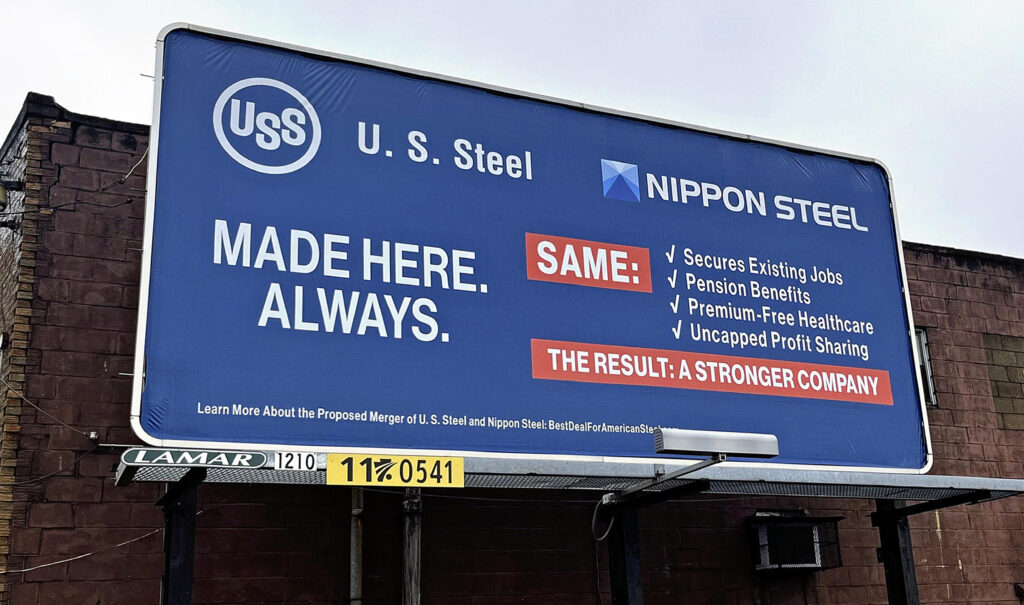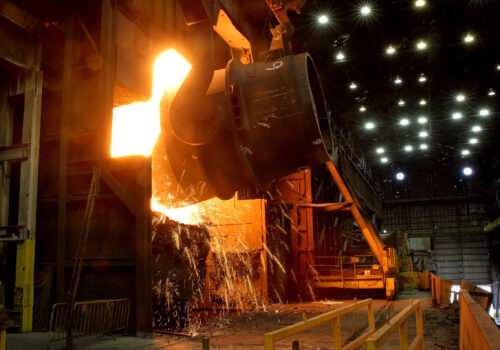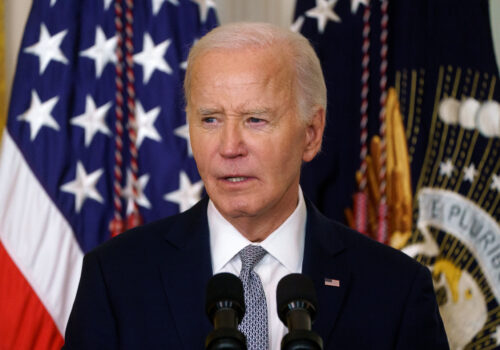Last week, US President Donald Trump announced that a deal had been reached approving a “planned partnership” between Nippon Steel and US Steel. This news seemed to settle an almost eighteen-month saga during which Nippon Steel’s proposed acquisition of US Steel was unexpectedly and controversially embroiled in a national-security review by the Committee on Foreign Investment in the United States (CFIUS). In one of his last acts as president, US President Joe Biden had prohibited the transaction before punting the decision to the next administration.
I have written about the Nippon deal numerous times, always emphasizing the commercial benefits of the deal, the ways in which Japanese investment in the US steel industry is a net positive for US national-security concerns, and the dangers of blocking the transaction. The big question now, beyond the specific details of the Nippon deal, is if the CFIUS process itself has changed in ways that will affect future deals.
Rather than indicate that CFIUS has returned to its narrow national-security mandate, the Nippon deal suggests that the Trump administration is willing to use CFIUS authorities to intervene in private transactions for political and industrial policy objectives.
CFIUS was not envisioned as a tool to manage US industries’ strategic competitiveness broadly.
First, the terms of the deal, while still scant, suggest that most of the terms mirror what was already on the table, just with a different public relations spin. In an attempt to head off criticism of the transaction, Nippon clarified that US Steel would retain its name and Pittsburgh headquarters and a majority US-citizen board. As public pressure against the deal mounted, Nippon also committed to invest substantially in upgrading US capacity and promised to not offshore US production.
Second, what may be different from Nippon’s previous offer is what US Senator David McCormick (R-PA) is describing as a “golden share.” This arrangement would likely give the US government direct control over a certain number of board seats, though no specific details of the arrangement have been disclosed. Despite the use of the term “share,” there doesn’t seem to be any indication that the US government would take an ownership stake in the company. While CFIUS mitigation agreements have in the past provided the US government with some authority to maintain minimum standards for key personnel post-merger, it would be a substantial increase in the use of CFIUS authorities to create an open-ended requirement for the US government to approve board members in an active and ongoing manner.
Depending on the final wording of the arrangement and the manner in which CFIUS implements it, government control over board members could be used for broad industrial policy practices. CFIUS is supposed to analyze proposed cross-border acquisitions for discrete national-security risks and to only intervene if it finds a risk to national security that arises from the transaction under review. Its mechanisms for intervention are a mitigation agreement or a recommendation that the president prohibit the investment. CFIUS was not envisioned as a tool to manage US industries’ strategic competitiveness broadly, but the United States’ expanded interest in critical supply chains has substantially blurred the line between strategic industrial policy considerations and narrow national-security concerns.
If the US government began imposing strict production requirements on Nippon, that would mark a substantial drift toward statist production management measures. Moreover, the embrace of a more forward-leaning mitigation stance would mirror the French approach to foreign investment review since 2014. As a reflection of how that has played out, Paris imposed mitigation measures on 53 percent of authorized transactions in 2022. More to the point, it would run counter to the White House’s America First Investment Policy, which explicitly calls for the end of “overly bureaucratic, complex, and open-ended ‘mitigation’ agreements” in favor of ones that “consist of concrete actions that companies can complete within a specific time, rather than perpetual and expensive compliance obligations.”
Finally, Trump, who announced a celebratory rally in Pittsburgh along with the agreement, and Biden, who touted his decision on the campaign trail, set a concerning precedent by openly politicizing the Nippon Steel deal. In 1975, US President Gerald Ford established CFIUS through Executive Order 11858. Originally little more than a data-seeking exercise, CFIUS was explicitly formed to depoliticize foreign direct investment (FDI) at a time when some members of Congress were increasingly alarmed about the security implications of investments from oil-rich nations. Over the years, the four major overhauls of CFIUS authorities in 1988, 1992, 2007, and 2018 have all, to varying degrees, featured a tug-of-war between a Congress that sought more oversight over FDI for a mixture of security and political reasons and an executive branch that generally tried to keep FDI from becoming a political football.
If CFIUS reviews become simply political talking points—rather than being based on factual merits—and if firms think that they must mollify the US president in order to be allowed to invest in the United States, then the Nippon Steel deal will be remembered as the transaction that confirmed the fifty-year attempt to depoliticize FDI into the United States has failed.
Sarah Bauerle Danzman is a nonresident senior fellow with the GeoEconomics Center’s Economic Statecraft Initiative.
Further reading
Wed, Mar 19, 2025
Investment screening reform may stifle international investment in US
Econographics By
The Trump administration wants to reform the Committee on Foreign Investment in the US. But what does this actually mean for US industry, investment, and innovation?
Mon, Jan 8, 2024
The US Steel deal is a test of friendshoring—and the US is failing
New Atlanticist By Sarah Bauerle Danzman
If Washington won’t allow this transaction—involving a buyer from a G7 country—then what foreign buyer would it see as a permissible owner?
Fri, Jan 3, 2025
Biden’s blocked US Steel deal carries big risks. Here are the top three.
New Atlanticist By Sarah Bauerle Danzman
On January 3, the US president blocked Nippon Steel’s proposed acquisition of the US company on national security grounds. It could have important consequences in the years ahead.
Image: A photo shows a signboard regarding United States Steel Corporation (U.S. Steel) acquisition states that jobs and pensions will be guaranteed even after the buyout of Nippon Steel at its plant in Pittsburgh, Pennsylvania, United States of America on April 3, 2024. The factory has been in operation since 1901. The United States Steel Corporation is an American steel company. Nippon Steel, Japan's largest steel producer, announced plans to acquire U.S. Steel. ( The Yomiuri Shimbun ) via REUTERS



